10 Best Drinks To Fuel Your Workouts

Plain and simple, your body needs the right fuel to keep it energized and functioning properly. It's especially important to have fluids throughout the day, like water, to stay hydrated. It's equally crucial to be mindful of other liquids that are beneficial to your body when you're working out. We're here with the 10 best drinks to fuel your workouts and why they boost your performance and recovery.
"Staying hydrated is vital for maintaining performance and preventing fatigue. Dehydration can lead to decreased strength, endurance, and coordination, as well as increased risk of heat-related illnesses," explains Amy Goodson, MS, RD, CSSD, LD, a registered dietitian and certified specialist in sports dietetics who sits on our Medical Expert Board. "[In addition,] electrolytes like sodium, potassium, and magnesium are lost through sweat and need to be replenished to maintain muscle function and prevent cramps."
Focusing on proper nutrition will help you maximize your workout results. For example, exercising requires carbohydrates for energy, and protein is essential to help build and repair muscle tissues that break down while you work out.
Goodson points out, "Without sufficient protein intake, muscle recovery, and growth can be compromised. Proper post-workout nutrition, including quick-digesting carbohydrates and high-quality protein, helps replenish glycogen stores, repair muscle tissue, and reduce inflammation. This speeds up recovery and prepares the body for the next workout."
Now, let's get down to the 10 best drinks to fuel your workouts.
Milk
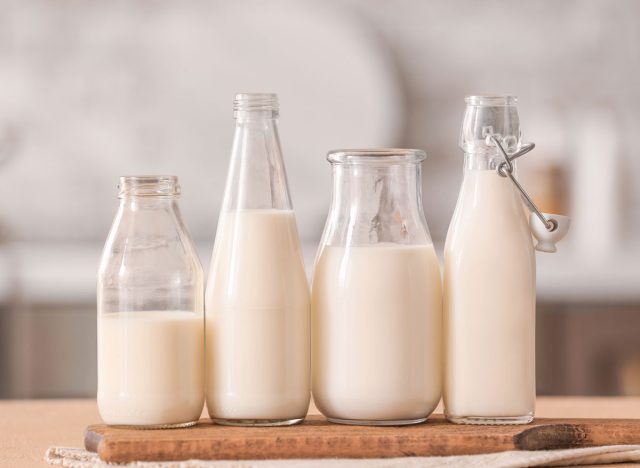
Sipping a cold glass of milk is an excellent way to get your fill of high-quality protein. Protein aids in muscle growth and repair.
"[Milk] contains carbohydrates for energy and calcium for bone health," says Goodson. The combination of protein and carbohydrates makes it an excellent [workout drink]." In addition, milk is approximately 90% water, so it will also help you stay hydrated.
Chocolate Milk
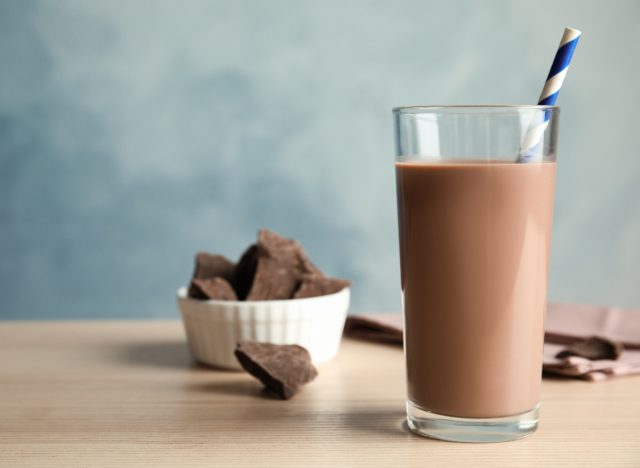
Who said healthy workout fuel couldn't be tasty, too? A great beverage choice is chocolate milk, which offers a solid balance of carbs and protein.
"The added sugar in chocolate milk helps replenish glycogen stores faster, and the protein aids in muscle repair," Goodson explains. "Like regular milk, chocolate milk is also naturally [about] 90% water, making it an excellent source of hydration."
Smoothies
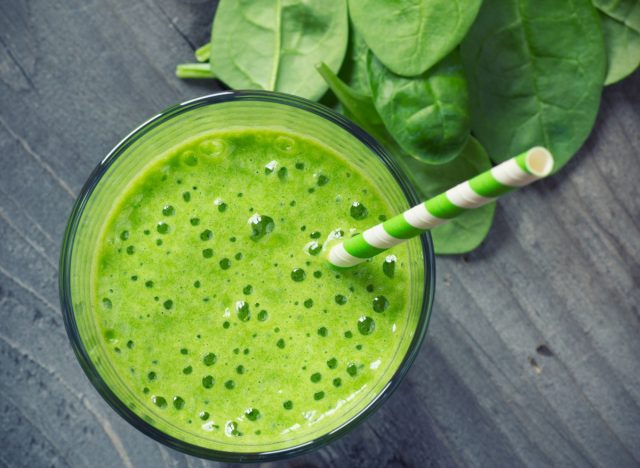
"I don't enjoy a yummy smoothie after a workout," said nobody ever.
Goodson recommends preparing yours with yogurt, fruit, and milk, pointing out, "Smoothies can be customized to include a mix of protein, carbohydrates, and healthy fats. The fruit adds natural sugars for energy, while milk and yogurt provide high-quality protein for muscle repair and probiotics for gut health."
Ready-to-Drink Shakes with Carbohydrates and Protein
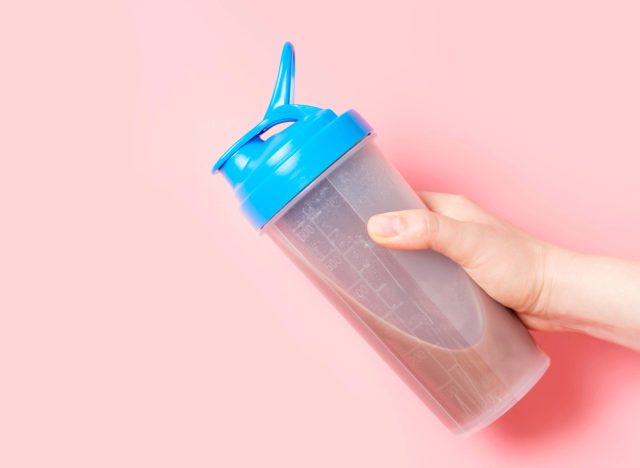
When you're on the go, ready-to-drink shakes are so convenient. They're prepared with an ideal ratio of carbs to protein.
"[Ready-to-drink shakes] are great for quick recovery post-workout, helping to rebuild muscle and replenish energy stores," Goodson tells us.
Tart Cherry Juice
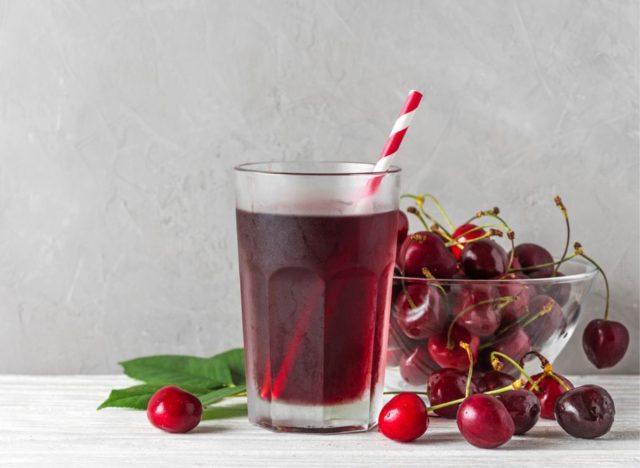
For a healthy dose of antioxidants with anti-inflammatory properties, enjoy a glass of tart cherry juice.
"[Tart cherry juice] can help reduce muscle soreness and improve recovery time after intense exercise," explains Goodson. "Tart cherry juice can be a fantastic component of a [workout] smoothie. It also helps increase melatonin, making it ideal as a night-time recovery beverage."
Beetroot Juice
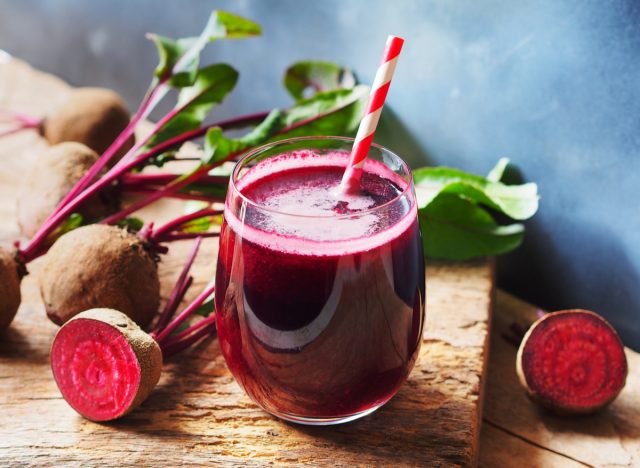
Beetroot juice may not be the first workout-boosting drink that comes to mind, but it's chock-full of nitrates, which help improve the delivery of oxygen and blood flow to muscles. "This can help enhance endurance and performance during workouts," says Goodson.
Pomegranate Juice
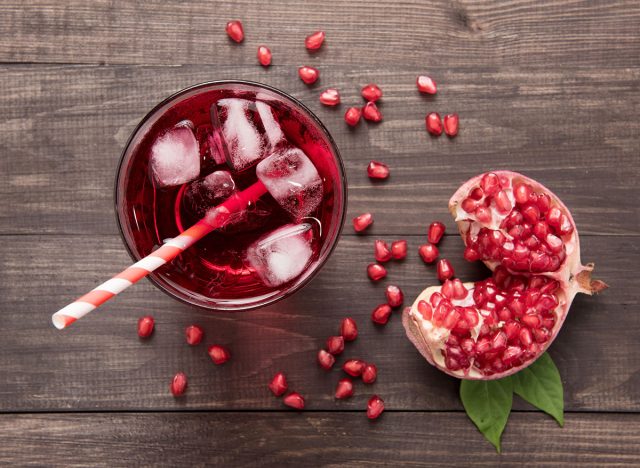
If you're a fan of pomegranate juice, drink up! This sip can help decrease oxidative stress and inflammation in your body.
"[Pomegranate juice] may also improve muscle recovery and reduce soreness after exercise," Goodson points out. "One-hundred percent pomegranate juice can be a pre-workout beverage." You can even add it to your workout smoothie!
Sports Drinks
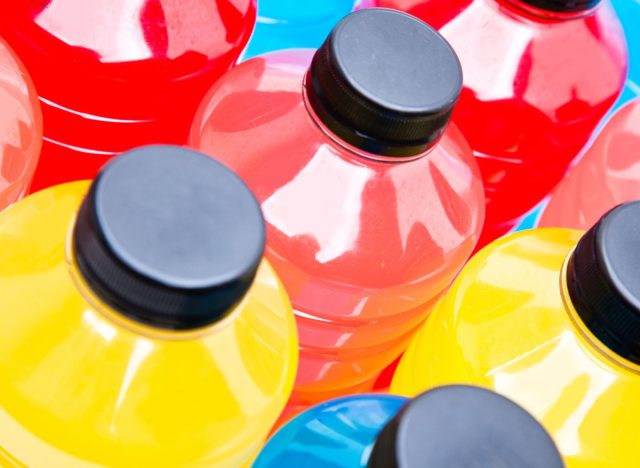
Sports drinks are a stellar source of electrolytes such as potassium and sodium, along with carbs, which are key in helping you preserve your energy and hydration levels during more intense exercise.
"[Sports drinks] help prevent dehydration and muscle cramps," says Goodson. "[They] are typically recommended when workouts will be 90 minutes or longer or when individuals are working out in hot and humid environments.
Low-Calorie Electrolyte Waters
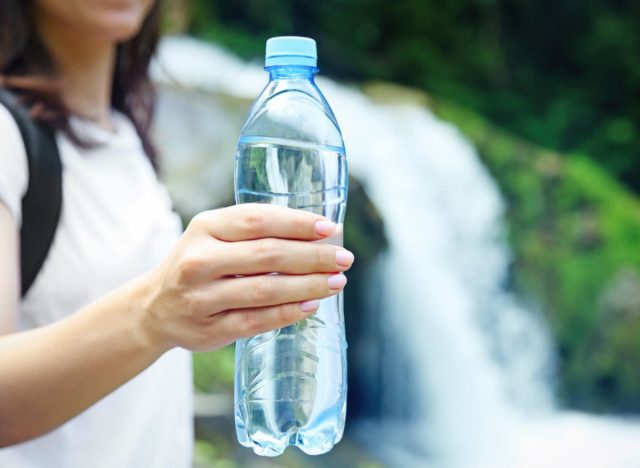
The next time you head to the grocery store, stock up on some low-calorie electrolyte waters. They are excellent for fueling your body with hydration and keeping your electrolytes balanced when working out.
Water
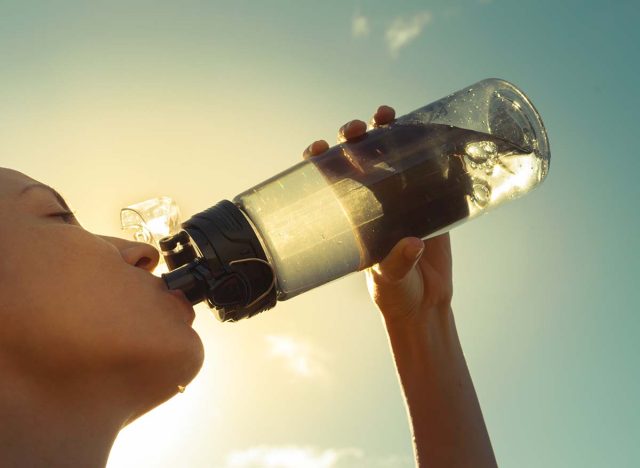
Don't sleep on good old-fashioned water!
"Staying hydrated is crucial for overall performance and endurance," Goodson shares. "Water helps regulate body temperature, lubricates joints, and transports nutrients to give you energy and keep you healthy."









